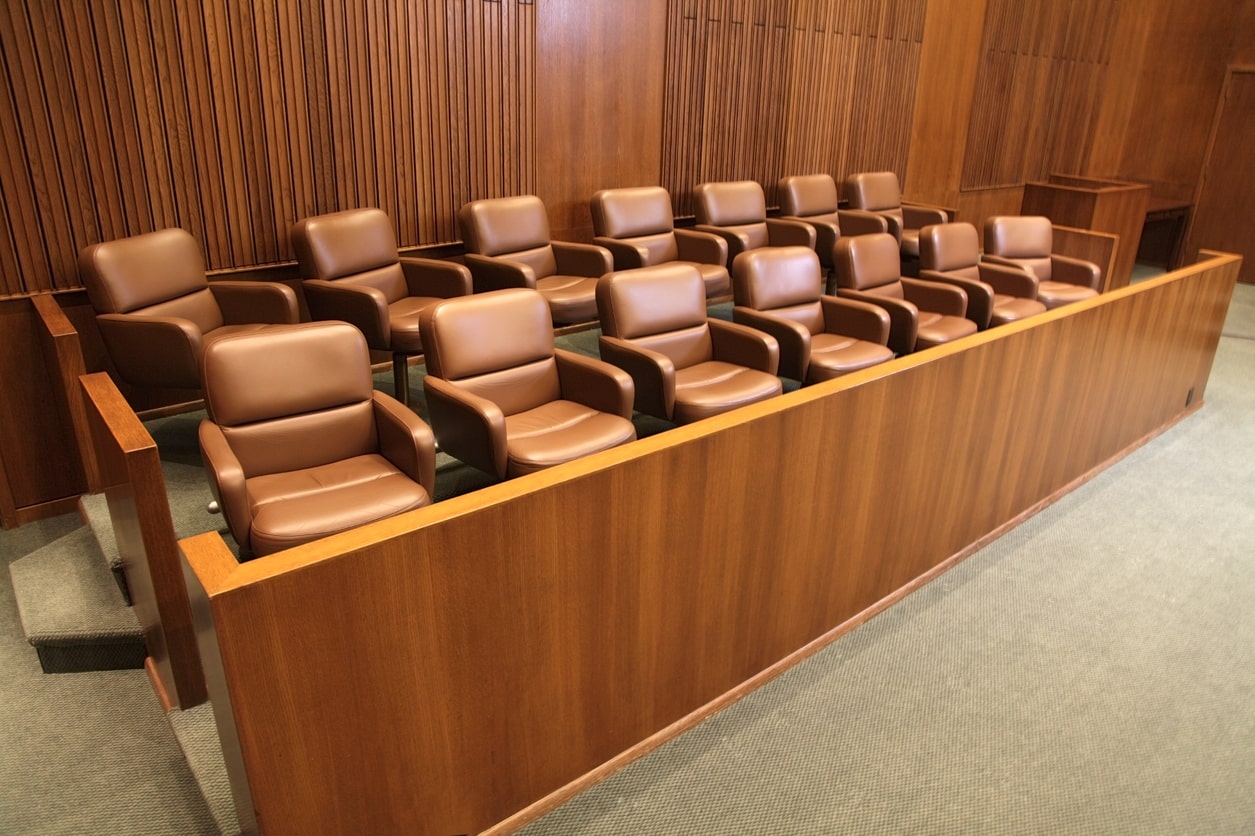
While sorting through your mail it appears – a summons for jury selection. For some, it may be an inconvenience or cause hardship. For others, this civic duty might be intriguing or exciting. Regardless of how we might feel about receiving the notice, we can all agree that juries, for some legal cases, are an essential component of our justice system. The importance of jurors in our society makes it all the more surprising that our system can leave jurors unprepared to face what could be an intense and traumatic experience at trial, or fail to provide them with assistance they may need at its conclusion.,
PTSD and Jury Work
Post-traumatic stress disorder is a reaction to a traumatic event with long-lasting symptoms that disrupt a person’s life. Symptoms can include: frequently reliving the event through flashbacks of vivid nightmares, changes in thoughts or moods that lead to irritability or being ‘on edge’, insomnia, and difficulty concentrating or memory.
While a person’s PTSD can be traced to a single event, it can also be linked to frequently experiencing traumas. Research on the disorder suggests that people with certain professions such as members of the military/veterans, front-line medical staff, and law enforcement personnel tend to have higher rates of PTSD than the general population.
Due to the kinds of evidence and events they may experience during their time in court, judges, lawyers, and court clerks are often encouraged to be aware of their own risk of developing PTSD. Most people in these professions have work-related insurance plans that provide short or long-term disability benefits should they need to seek medical treatment and time-off to recover from symptoms.
But what about jurors? Are citizens from various walks of life truly ready for the kind of stress and trauma at a trial? And how can they seek help if they need it?
Jury-Related Stress and Traumas
Researchers have found certain aspects of the juror experience that can provide the conditions for traumatic stress that may result in PTSD, particularly for vulnerable candidates. These include:
- being unprepared for the graphic nature of evidence (photos, video, testimony) or hearing about specific criminal or otherwise disturbing actions repeatedly during a trial.
- evidence in the case that triggers the memory of a past trauma a juror has experienced.
- heated arguments, and occasionally physical confrontations between jury members during deliberations – particularly if there is significant differences of opinion on the panel or pressure to change a juror’s vote in order to reach a verdict.
- internalizing the fate of another person and the burden of responsibility in making a decision that could profoundly affect someone’s life.
- the isolation a juror may feel by being sworn to secrecy and being unable to achieve catharsis through discussion with fellow jurors during the trial or with friends and family.
What Can Be Done?
The overriding requirement for a fair and impartial trial can make some of these stresses unavoidable. As Andrew Guthrie Ferguson, a professor of law and author of Why Jury Duty Matters: A Citizen’s Guide to Constitutional Action, writes in the Atlantic, “Judges naturally avoid warning jurors about upcoming evidence for fear of influencing the jury’s evaluation of that evidence, and counselors cannot consult with jurors during the trial without interfering with the jury’s decision-making.” Even after the conclusion of the case courts can be cautious about providing counselling services because the feelings and thoughts expressed by jurors could open the verdict to a challenge.
Psychologists at the University of Leicester who have studied PTSD in jurors suggest that generally more must be done to suitably prepare jurors for what they may face during a trial. They have recommended that courts provide jurors with questionnaires to prevent jurors from sitting on cases which may particularly resonate with their own past traumas and raised the possibility of providing supporters (similar to what is offered to vulnerable witnesses) to ease feelings of isolation.
Are Your Experiencing PTSD Symptoms After Jury Duty?
Even if these types of changes are made, the risk for developing PTSD after serving on a jury, or having existing PTSD triggered, is still very real and serious.
Learn the symptoms of PTSD and look for signs that they may be manifesting. If you begin to fear or avoid situations that remind you of your experience while serving on a jury, take special note.
Unless ordered by a judge, jurors in Ontario who seek out help to deal with these issues through counselling must pay for it out of pocket, or through their insurance-plans. However, consulting your doctor and obtaining a diagnosis can help. You may be eligible to receive short or long-term disability benefits if your PTSD is preventing you from working or causing unexpected expenses as you seek treatment.
For more information or to speak about a denial of short or long term disability, please contact Brad Moscato at 416-646-7655 or bmoscato@hshlawyers.com.






